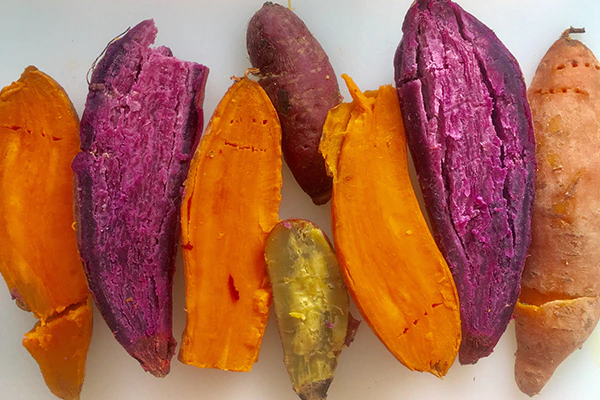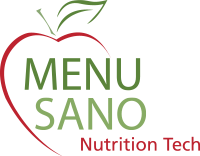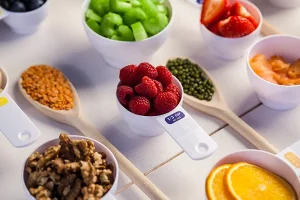Whether it is mashed, fried, hashed or any of a million different combinations, potatoes are the favorite foods for many. They’re considered a staple in many parts of the world where they make up a large proportion of the daily intake and they have been for a long time.
Potatoes and sweet potatoes, despite sharing a similar name with each other, are different. Sweet potatoes contain more sugar than regular potatoes; however, there are also many different vitamins that you can find in sweet potatoes that aren’t as prevalent in regular potatoes.
This can lead to many people being confused, not knowing if sweet potatoes are healthy or not.
What are the nutritional benefits of sweet potatoes?
Sweet potatoes are often said to be healthier than regular white potatoes because they contain more fiber and vitamins such as Vitamins A. Despite this, sweet potatoes do contain the same amount of carbohydrates per 100g as regular white potatoes.
So when you eat them, your blood sugar levels will rise at an increased rate. This may not be the best option if you’ve been diagnosed with diabetes or insulin resistance. And unlike many starchy foods that can be considered ‘complex’ (such as whole grains and legumes, which contain fiber and proteins), sweet potatoes aren’t as filling because they don’t contain as much protein.
Read more: Your Family Nutrition
Vitamins and Minerals
Like other vegetables, sweet potatoes offer a wealth of health benefits. They are a good source of fiber, potassium, and vitamins A and C. Sweet potatoes also contain antioxidants, which can help protect your body against disease.
Sweet potatoes have been given a bad name for being high in sugar; however, they’re no different from regular potatoes regarding carbohydrate per calorie. In fact, they’re slightly lower at 4g/100kcal versus 5g/100kcal.
Sweet potatoes also contain significantly more Vitamin A than regular potatoes, and while the two types of potatoes contain very similar levels of vitamin C and potassium, sweet potatoes do contain more magnesium and calcium (by weight) according to food and nutrition software.
Sweet potatoes are an excellent source of beta-carotene, providing about 20 times more than what you get from carrots. Beta-carotene is converted into vitamin A in the body and is important for healthy skin, hair, and nails, as well as good vision.
Read more: The Truth about Diabetes

What’s the healthiest way to eat sweet potatoes?
When it comes to sweet potatoes, there are many ways to enjoy them and get the most benefit from their nutrients. With the help of Nutrition Analysis Software, you can make sure that you’re eating them in the healthiest way possible.
Deep-fried sweet potatoes might taste delicious, but they aren’t the best way to consume them. Rather, consider baking them or roasting them. In either fashion, they taste great and can be combined with other meats and vegetables to make a healthy and fulfilling meal.
If you can find them, Japanese varieties of sweet potatoes are typically smaller and contain far less water than their American counterparts.
Japanese sweet potatoes taste great when roasted with a small amount of olive oil, salt, and pepper for seasoning. They taste equally great, baked in an oven or cooked on a grill over an open fire. You can also microwave them, but they tend to dry out a bit that way.
Sweet potatoes are an option for any meal of the day. Some healthy breakfast favorites include sweet potato hash browns and skillet-style sweet potato breakfast. For a healthy lunch or dinner, consider making a gnocchi with sweet potato or even a sweet potato soup.
Read more: Bringing Nutritional Analysis Home
Are sweet potatoes high in carbohydrates?
The answer to this question depends on the type of potato in question. Both sweet potatoes and regular potatoes have about 20 grams of carbs. However, sweet potatoes have more fiber and vitamins, making them a healthier option.
It’s also important to understand that not all carbohydrates are bad. Because of their low glycemic index score, high fiber content, and overall nutritional value, sweet potatoes are considered a good carb.

How to Store
One of the best ways to store sweet potatoes is by wrapping them in a paper towel and placing them in a zip-lock bag. This will help keep them from drying out. Another option is to place them in a cold cellar or even the refrigerator.
When properly stored, sweet potatoes can last up to two weeks.
Read more: Food Labeling Modernization Act: Why it Matters for Food Manufacturers
Risks and Warnings
Regular potatoes contain two types of sugars: glucose and fructose. Sweet potatoes, on the other hand, contain glucose, fructose, and sucrose. Sucrose is a combination of glucose and fructose, which means that it contains more sugar than either of its parts.
This isn’t to say that you should avoid sweet potatoes altogether – they’re still a nutrient-dense source of carbohydrates and should only be limited if you have a sensitivity to glucose.
For those who aren’t particularly sensitive to sugars (i.e., most healthy adults), sweet potatoes can make a great addition to any meal.
Despite their health benefits, sweet potatoes shouldn’t be eaten in large quantities. Like other starchy vegetables, they can cause blood sugar levels to spike and contribute to weight gain if eaten in excess. When consumed in moderation, however, sweet potatoes are a healthy and nutritious addition to any diet.
So are sweet potatoes healthy? The answer is definitely yes!
Read more: 5 Ways to Add more Fiber
How MenuSano Can Help
If you are looking for a way to see how you can fit sweet potatoes into your recipes, all while keeping sugar levels low and nutritional value high, MenuSano is the tool to use!
Our Nutritional Recipe calculator can help you experiment with several ingredients, to hit the health and nutrition goals you’re aiming for.
You can get started with a Free Trial today!



















